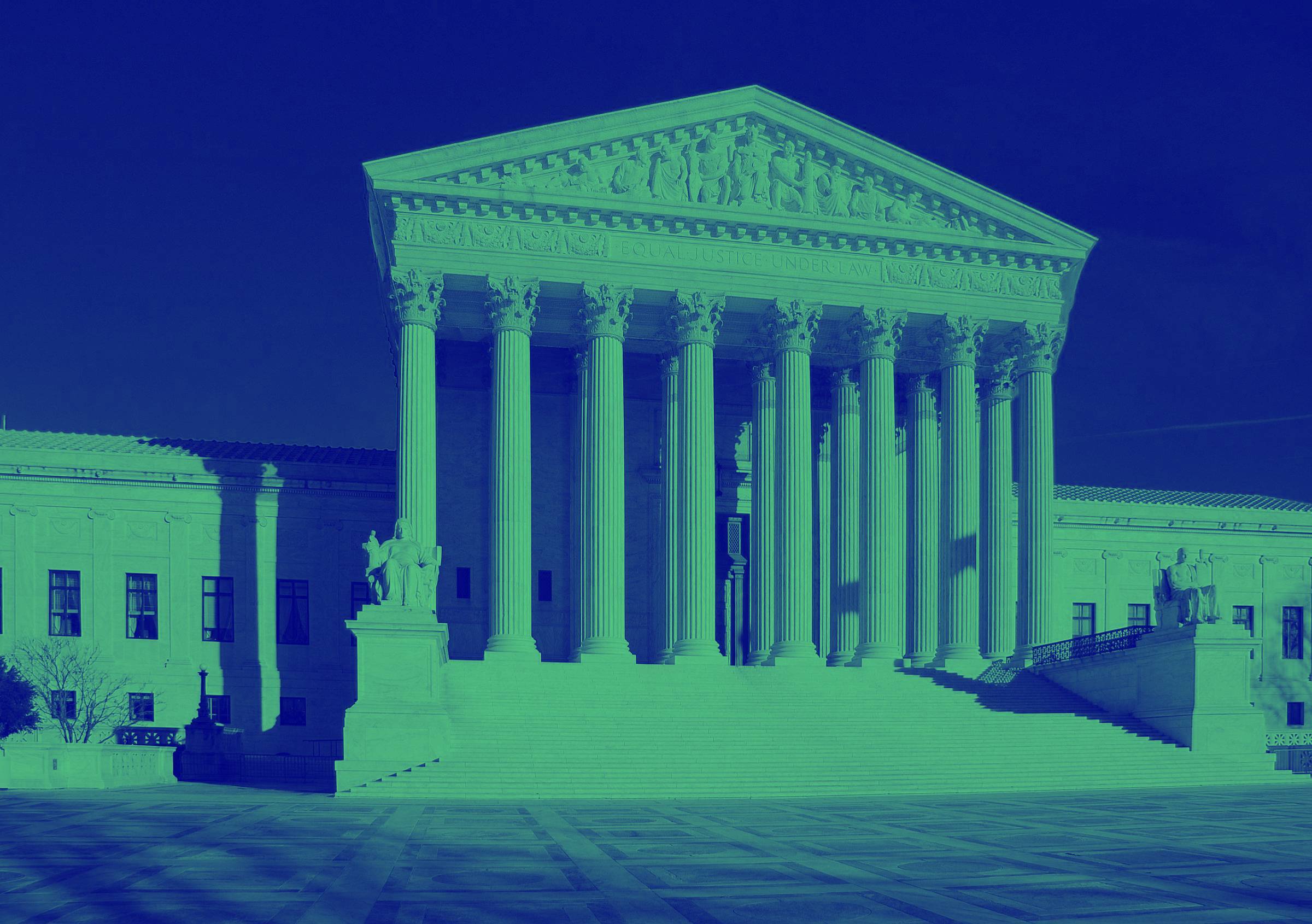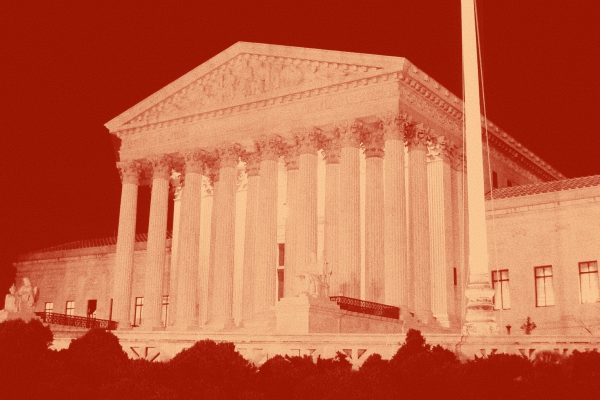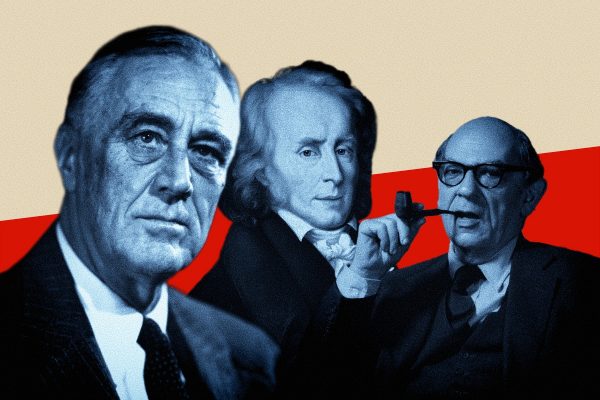We appreciate all of these responses, for many different reasons, but one of them is simply that together the responses exemplify our highest aspiration for this book: that it will inspire others to do related work fashioning a version of the democracy-of-opportunity tradition for our own time.
It is going to take a lot of work. And that work will be, as Andrea Scoseria Katz describes it, decidedly “uphill.” She is right that we aim to convince progressives to appreciate the “ineliminably political” nature of constitutional argument—and to disabuse themselves of the notion that the Supreme Court ought somehow be made to sit above politics, rendering judgments that ought to be defended from politics. Convincing progressives to reorient their view of politics and the Court in this way is not easy or quick. It is something like turning an enormous ship. But the Supreme Court may well help us out. The more damage the Court does to the country—the more nakedly it translates not just its reactionary vision of political economy, but really the whole agenda of one minoritarian political party, into constitutional doctrine—the more that vessel will turn. In other words, the Court’s increasingly aggressive efforts to revive the Lochnerian constitutional political economy of the 1930s may ultimately help revive the constitutional politics of the 1930s, as well. We see our book, The Anti-Oligarchy Constitution, in part as a sourcebook, a set of resources for progressives to draw on, as this great shift creates more room and more need for progressive constitutional arguments in politics, outside of courts.
Part of the work will be, as Kate Andrias suggests, translating the claims about constitutional political economy that make up the democracy-of-opportunity tradition into the kinds of idioms of constitutional argument that contemporary Americans recognize. We think this work is easier in the field of labor that Andrias highlights than in most others. Structural claims about constitutional political economy were central to the tradition we describe (both in our essay here and in the book) but are a tougher fit for our present legalistic and court-centered constitutional world. Labor, however, has always made sharp and ringing claims about rights, many of them with deep roots in constitutional text. The right to organize, the right to strike, and the right to associate and to speak to one another have long been central to labor’s constitutional case.
Americans understand these claims today, whether they agree or disagree with them—and whether or not courts are willing to vindicate them. We think the work these claims did on the ground in labor struggles, legislative arenas, and even in court is essential source material for those who wish to revive labor’s constitutional claims today. Our book, in addition to exploring this source material, begins to sketch some of that work of revival. But as Andrias suggests, much more work is required. And quite a lot of it will be by labor activists themselves, along with political leaders.
This forum is featured in Rethinking Law.
Sanjukta Paul suggests that perhaps the idea of “political economy” is itself a bit too redolent of neoclassical notions for our purposes. She urges us to reach back, as she has done in other work, to the older idea of a “moral economy”—a term the great English historian E. P. Thompson coined to capture the notion that market relations are (or ought to be) embedded in and constrained by customary norms and conceptions of fairness. As a matter of terminology, we think “political economy”—and therefore “constitutional political economy”—is capacious enough to capture a wide range of positions and work, including Paul’s. We do not write here on a blank slate. Instead, we write at a moment of extraordinary progress for a movement in law, political science, and related fields that sails under the “political economy” flag. For example, the Law and Political Economy (LPE) Project, to which several of the participants in this forum, including Paul, have contributed great work, has shown the power of political economy as a framework around which to build a movement. The core idea—that politics and markets are inextricably intertwined—is open-ended, and good for getting a variety of claims off the ground. We agree with Paul that as this field matures, the question of who is entitled to coordinate with whom—as among workers, employers, firms of various sizes and market positions, and so on—will be a central battleground of fights about constitutional political economy, and we appreciate her work developing the tools for analyzing this rich set of problems.
To be relevant today, the democracy-of-opportunity tradition will need to evolve and change quite a lot. This has happened many times before. This means inventing new policies and institutions to instantiate the democracy-of-opportunity tradition in a changing world; it also means reckoning with the tradition’s tangled, tragic past, and the lasting effects of that past on the present. We agree with Aziz Rana: a rekindled democracy-of-opportunity tradition must once again widen its moral horizons and imagined membership. And this requires addressing the historical connections between several past eras of egalitarian political-economic reform and the concurrent political economies of slavery and of imperial conquest and neoimperial expansion. As we explore in the central chapters of the book, the Jacksonian democrats’ early incarnation of the democracy-of-opportunity tradition tied its commitments to material freedom and independence for white male producers to the promotion of Black slavery and Indian removal. Reconstruction Republicans set out to change this tragic course of constitutional development, with new measures for and commitments to Black political and economic enfranchisement, but western expansion and conquest played a critical part in undermining them. And racial and gender subordination were wrought into, and in turn propped up, various aspects of the New Deal. (Historian Gabriel Winant’s recent book The Next Shift: The Fall of Industry and the Rise of Health Care in Rust Belt America has highlighted the lasting marks of this New Deal history—and how much of today’s political economy needs to be remade to undo them.)
But our book does not explore Rana’s most provocative suggestion, that the mid-twentieth century moment of relatively broadly shared prosperity—at least among white men—was linked with U.S. imperial projects abroad. Rana carefully notes that such connections were contingent facts of history, not “philosophical requirements.” We agree. But the fundamental question he raises is whether it is possible in the future to build a democracy of opportunity that is not linked with a national policy of “belligerence” and “external power projection.” We think the answer is yes. In part that is because there have always been powerful examples of efforts, as Rana puts it, to “wed anti-imperialism and democracy of opportunity,” such as those of W. E. B. Du Bois and Martin Luther King, Jr.; these voices have been dissenting ones, but today we must bring them into the mainstream. The prospect for building a multiracial party of radical democratic reform, as uphill as this may be, is a great deal better now than it was during any past U.S. crisis of economic inequality. And only a radically more democratic and inclusive constitutional political economy on the domestic front can undergird the political conditions for a United States committed to creating the frameworks for a more democratic and egalitarian international political economy. Rana’s forthcoming work on just this mighty problem will be an essential starting point for the reimagining it entails.
Finally, we certainly have not given, as Mark Tushnet puts it, a complete “progressive constitutional manifesto for the twenty-first century.” We do not discuss a wide range of issues that any such manifesto definitely would cover, including some of truly existential urgency, such as Tushnet’s first example of climate change. To be sure, a federal government that was reconstructed in some of the ways we advocate, with more power for Congress and less for the Supreme Court, would be dramatically more able to meet the challenge of climate change, because it would be more capable of acting in many spheres. But that is not the same thing as saying that addressing climate change is something the Constitution requires (beyond the obligation to secure the general welfare, of which this issue is surely an urgent part). We are more than open to some of the democratic innovations Tushnet offers, including using new mechanisms such as deliberative polls for democratizing and decentralizing the way policy is made. This kind of innovative institutional rethinking echoes and builds on some of the rethinking advocates working in the democracy-of-opportunity tradition did a century ago, during the last Gilded Age. But any such innovations will only be achieved through politics. And specifically, we would submit, through a politics that emphasizes the democratic strains in our Constitution.
We close this brief reply where we began it: with enormous gratitude to the respondents and renewed energy for the work that lies ahead.








